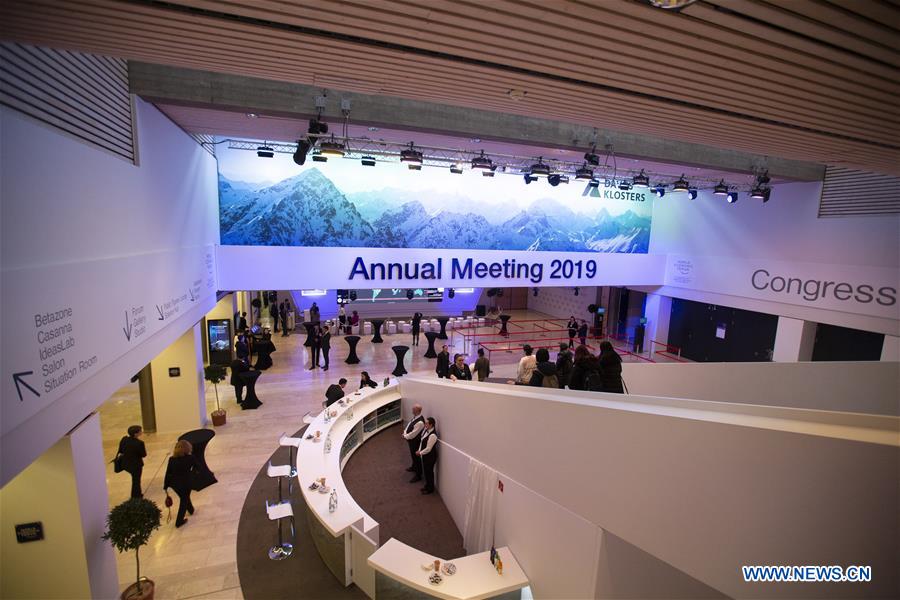
Workers prepare for the upcoming 49th Annual Meeting of the World Economic Forum (WEF) in Davos, Switzerland, Jan. 21, 2019. The WEF Annual Meeting will kick off in Davos on Tuesday. (Photo: Xinhua)
Washington (People's Daily app) - The IMF’s World Economic Outlook (WEO) forecast for January 2019 said, “The global expansion has weakened.”
The yearly financial forecast said the global economy could grow at 3.5 percent in 2019 and 3.6 percent in 2020, 0.2 and 0.1 percentage points below last October’s projections.
For the emerging market and developing economy group, growth is expected to fall 4.5 percent in 2019, down from 4.6 year-on-year before improving to 4.9 percent in 2020. The projection for 2019 is 0.2 percentage points lower than the October 2018 WEO forecast.
Trade tension escalation will be a significant risk. Global trade, investment, and output remain under threat from policy uncertainty and ongoing trade tensions. Failure to resolve differences along with additional tariff barriers will lead to higher imports costs of capital goods and consumer prices.
Heightened uncertainty over trade policies and concerns with escalation and retaliation measure would decrease business investment, disrupt supply chains, and slow productivity growth. If countries resolve their differences without raising disruptive trade barriers and market sentiment recovers, then improved confidence and easier financial conditions could reinforce each other to lift growth above the baseline forecast.
Financial conditions have already tightened for both advanced economies and emerging markets since the fall.
Concerns over a US government shutdown further weighed on financial sector sentiment toward year-end.
Major central banks also appear to be adopting a more cautious approach. A range of catalyzing events in key systemic economies could spark a broader deterioration in investor sentiment and a sudden, sharp repricing of assets amid elevated debt burdens.
Italian spreads have narrowed from their October–November peaks but remain high. A second source of systemic financial stability risk is a deeper-than-envisaged slowdown in China, with negative implications for trading partners and global commodity prices. Global growth would likely fall short if any above events were to materialize and trigger a generalized risk-off episode.
IMF suggests multilateral cooperation and domestic policies need to focus on preventing additional deceleration and strengthening resilience.
The shared policy priority is centered on countries resolving together and swiftly trade disagreements and policy uncertainty, rather than raising barriers that would further destabilize an already slowing global economy.
Across all economies, measures to boost potential output growth, enhance inclusiveness, and strengthen fiscal and financial buffers in an environment of high debt burdens and tighter financial conditions are imperatives.


